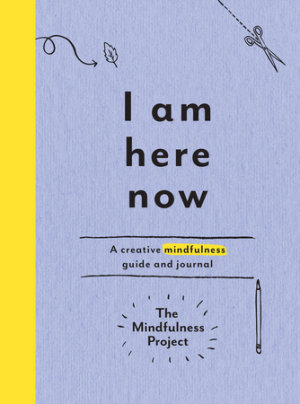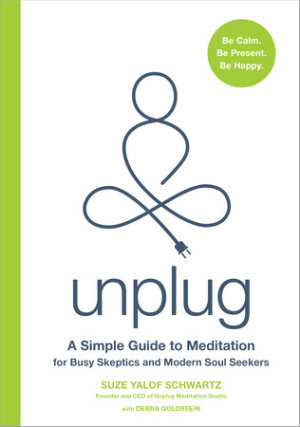Interviews
Meditation Advice for Beginners from Dan Harris
The author of Meditation for Fidgety Skeptics is here to help with pandemic anxiety

If you want to fall asleep faster, reduce stress, and boost your mood, join us as we Read to Sleep! We’re committing to a healthier habit of picking up a book at bedtime instead of staring at a screen. We’ve got recommendations for you here!
Many of us are grappling with stress, fear, and uncertainty during the global pandemic. We’ve all heard that meditation is helpful, but it’s so hard to start! That’s why we talked with Dan Harris, the author of Meditation for Fidgety Skeptics, to help us take some baby steps towards mental health.
This interview has been edited and condensed.
Amy Brinker: I think a lot of people have tried to start meditating in fits and starts. What do you think is the main stumbling block to beginning a consistent medication practice?
Dan Harris: I think it’s time – and that’s going to sound weird because many of us have more time than ever, locked down, but I just speak for myself: it doesn’t feel that way because I’m always on. The ambient overwhelming anxiety of the situation taxes our brains, so we’re just… we’re not functioning at our best. Adding in a new habit that we were already feeling guilty about not doing just is tough on the system, I imagine.
AB: There’s real pressure to make the best of a bad situation and be productive. That can feel like a big obstacle when all you want is comfort, and especially when you feel strapped for time. But meditation can be a lifeline.
DH: I really feel that. So, I guess what I would say to combat that not-enough-time argument is two things:
One is, I don’t think this needs to take too much time. The little twin slogans that I use are, “one minute counts” and “dailyish”. One minute is enough for you to pull out of the momentum of your day for a second, so that you’re not just toppling forward all the time. It’s not going to be magic, but it’s still a little bit of calm. The other slogan, “dailyish”, provides enough elasticity so that you if you fall off the wagon for a day or two or three, you can still start up again, and that’s totally fine.
Two is, you need to approach meditation with a sense of exploration and experimentation and being willing to “fail” and start again.
I hope that lowering the bar in this way will help. The other thing I would say is that meditation itself will help. It will, it will help. The data around what meditation does for people with anxiety and depression is really compelling, and I think we’re all grieving. We’re grieving a way of life that’s been lost and we don’t know if it’s going to be recovered. We’re grieving a sense of safety and security because we don’t know what’s going to be recovered and when. I think there’s an argument to be made that it’s a collective trauma and meditation (among other things) can be really useful.
AB: It can be very hard to let go of control. I think that’s been some of the struggle with shelter-in-place is that there is largely not much you can do about the situation. You can give money, you can donate, you can organize, but for the most part it’s inaction, and that is a really difficult thing to accept as productive or valuable. Something I find difficult in meditation is not striving, not acting. Can you expand on what it means to non-judgmentally observe yourself rather than trying to fix or act?
DH: I think meditation is really useful. You can direct it right towards that incredibly frustrating, hard to tolerate sense of powerlessness. Pair that with uncertainty, right? We also keep bumping up against our tendency to plan for the future and we don’t know what’s going to happen, two things that are really hard to live with. Meditation is not going to cure it, but it will throw you up against it in a way that sometimes will allow you to relax into it.
The point of meditation is not to stop thinking, it’s to develop a different relationship to the thoughts
So, you’re sitting in meditation, you’re following your breath. Usually you start by just looking at our breath and then you get distracted (which happens a million times, that’s part of meditation) and then you start again.
Another way to relate to the distraction, especially if it’s something powerful like a sense of helplessness, is to just kind of investigate it. By investigating I don’t mean getting lost in the story of the helplessness, I mean, how does this feeling of frustration or restlessness manifest in my body? For some people it might be tension in the shoulders, face, a headache, you might realize you’ve been clenching your jaw for the last 30 years. Can you investigate it that way, just in terms of dropping beneath the thinking into the raw data of your senses where most of us don’t live?
When a feeling of powerlessness comes up, instead of doing anything about it, in meditation, just let it be there and investigate it with some warmth and curiosity. Warmth is really important because that neurotic program in you, the anxiety, the desire to be effective, is just the organism trying to protect itself — you can be grateful for that without actually giving into it.
Having meditated with a feeling, having sat with it, having some greater sense of self-awareness, you can just know, oh yeah, this is what’s happening right now. You can stop, pause and make a wiser decision about how you want to proceed.
AB: It’s been really interesting in meditation to just to start noticing that physical sensations are information. It’s hard if you’re an overthinker to find value in sensations that you can’t concretely assign to a meaning.
DH: Once that mind-body connection is pointed out to you, it is inescapable because your body is always with you. If you can just make a slight shift in attention from being in your head all the time to just waking up to your body, then those signals become more and more salient, and it becomes easier advice to follow.
AB: For brand new beginners who probably can only handle taking ten breaths or meditating one minute at a time right now, could you just stress a few of the things that you most want to communicate?
DH: The most important attitude to take into meditation is: do not have any expectations. I think the expectation most of us put on ourselves is that we’re going to feel immediately calm or that we’re going to “clear our minds,” but that is the most noxious thing you can bring to the party because it is impossible to clear your mind. As my coauthor Jeff Warren says, the mind secretes thoughts like the stomach secrete enzymes. You can’t stop that process; stopping it will make it worse. Trying to stop it will make it worse.
The point of meditation is not to stop thinking, it’s to develop a different relationship to the thoughts. The attitude should be, can I have some curiosity, some warmth, some perseverance in the face of that? So that every time I notice I’m distracted I either blow it a kiss and gently escort my attention back to the breath, or I get curious about it and investigate it. You’re going to look at how the feeling shows up in your body so that you’ll be able to better recognize it later when you need it in life.
The most important thing I would say to people is: don’t put pressure on yourself to clear your mind because that’s impossible unless you’re enlightened or dead.



Find more books on mindfulness and meditation here!





















